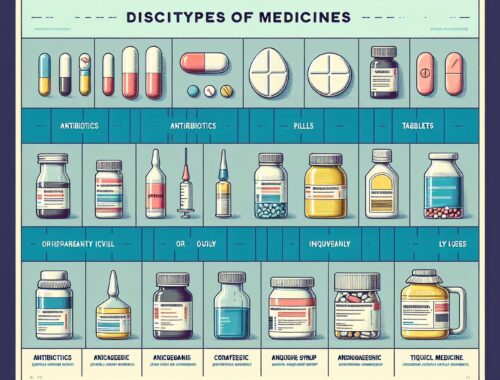
Understanding the Different Types of Medicines
Medicines play a crucial role in our lives, enabling us to lead healthier and more productive lives. From common ailments to chronic diseases, medicines provide relief and aid in the management of various health conditions. However, not all medicines are the same. In fact, there are several different types of medicines, each with its unique purpose and mode of action. Let’s delve deeper into these types of medicines and understand how they work.
Over-the-Counter Medicines
Over-the-counter (OTC) medicines are those that can be purchased without a prescription. These medicines are readily available in pharmacies or supermarkets and are typically used for self-treatment of common conditions such as headaches, colds, allergies, or heartburn. OTC medicines are regulated by the authorities to ensure their safety and efficacy when used as directed. Although generally safe, it is important to follow the recommended dosage and consult a healthcare professional if symptoms persist.
Prescription Medicines
Prescription medicines, also referred to as prescribed or prescription-only medicines, require a written order from a healthcare professional. These medicines are usually more potent and used for complicated or chronic conditions, requiring closer monitoring and supervision by a healthcare provider. Prescription medicines encompass a wide range of drugs that treat conditions like infections, high blood pressure, diabetes, mental health disorders, and more. It is crucial to adhere to the prescribed dosage and follow the healthcare professional’s instructions for optimal results.
Generic Medicines
Generic medicines are equivalent versions of brand-name medicines. These medicines contain the same active ingredients, are administered in the same way, and have the same effects. However, generic medicines are typically more affordable because they don’t carry the brand’s development and marketing costs. Regulatory authorities ensure that generic medicines meet the same quality, safety, and efficacy standards as their brand-name counterparts. If your healthcare provider recommends a generic medicine, you can trust it to provide the same benefits as the brand-name option.
Herbal and Natural Medicines
Herbal and natural medicines have gained popularity in recent years as people seek alternative approaches to healthcare. These medicines are derived from plants, minerals, or animal products and are often used in traditional medicine practices. Herbal and natural medicines may be available in various forms such as teas, capsules, or extracts. While some of these medicines have shown promising results in certain conditions, it is essential to consult with a healthcare provider before using them. Herbal and natural medicines can interact with conventional medicines or may not be suitable for everyone.
Specialty Medicines
Specialty medicines are a distinct category of medicines that target complex and often rare health conditions. These medicines are often biologics, meaning they are produced from living cells and require specialized manufacturing processes. Specialty medicines may include treatments for conditions like cancer, autoimmune diseases, rare genetic disorders, or chronic inflammatory conditions. Due to their complex nature, specialty medicines usually require stringent storage and handling conditions and may be administered via injection or infusion.
In conclusion, medicines play a significant role in maintaining our health and well-being. Understanding the different types of medicines, including OTC medicines, prescription medicines, generic medicines, herbal and natural medicines, and specialty medicines, allows us to make informed decisions about our healthcare. Remember to always consult with a healthcare professional for proper diagnosis, treatment, and guidance on the most appropriate medicine for your specific condition. By doing so, we can ensure safe and effective management of our health concerns.
You May Also Like

Exploring the World of Medicines
March 22, 2024
Understanding the Different Types of Medicines
December 23, 2023

